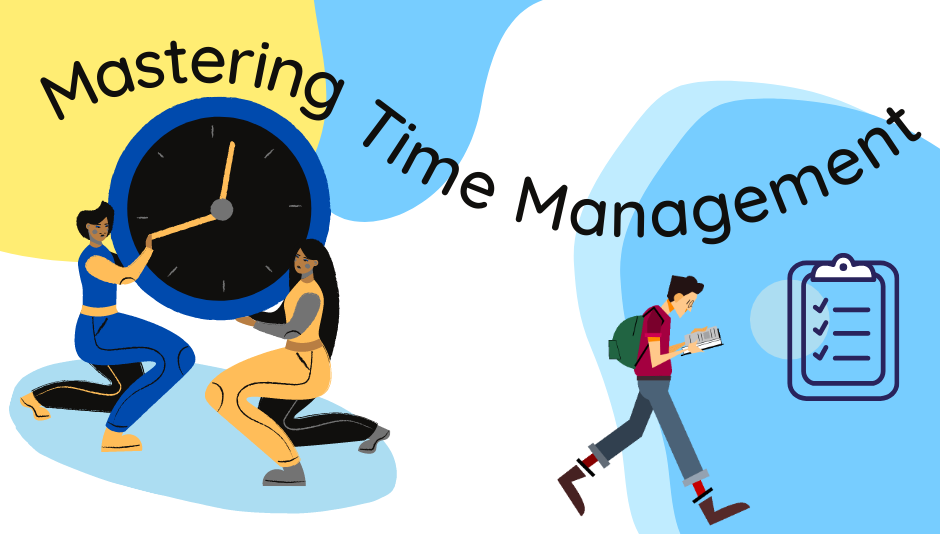
Table of Contents
Introduction To Time Management
Time is a precious resource, and how you manage it can significantly impact your career success. Mastering time management is crucial to enhance productivity, reduce stress, and achieve your professional goals efficiently. By recognizing the importance of time management and following these tips, you can reach a new level of productivity and success in your career.
In this article, we will explore the art of time management and provide six actionable strategies to help you make the most of your workday. From prioritizing tasks to setting boundaries, these six tips will empower you to take control of your time and boost your overall effectiveness in the workplace. Let us begin!
1. Assessing Your Time
Before improving time management, assess how you currently spend your workdays. Keep a detailed log of your activities and how much time you allocate to each task. Identify patterns of time-wasting or tasks that are less productive. This evaluation will serve as a baseline for your time management improvement plan and help you identify areas where adjustments are needed.
2. Prioritizing Tasks
To make the most of your time, prioritize tasks based on their importance and urgency. Utilize time management frameworks like the Eisenhower Matrix to categorize tasks into four quadrants: urgent and important, important but not urgent, urgent but not important, and neither urgent nor important. Focus on high-priority tasks that align with your long-term goals and can have a significant impact on your career. Learn to say no to non-essential tasks or delegate them to others when possible.
3. Creating a Daily Schedule
Establish a daily schedule that allocates specific time blocks for different tasks and responsibilities. Plan your most important and challenging tasks during your peak productivity hours. Use time management tools like calendars or digital apps to organize your schedule and set reminders. Stick to your schedule as closely as possible, but also allow for flexibility to handle unexpected interruptions or emergencies.
💬 Get Paid in Dollars Just by Chatting With Lonely People
Imagine earning daily dollar income from anywhere in the world — no degree, no experience, no interviews — just your phone or laptop.
People are getting paid simply to chat, listen, and keep others company online. This short ebook reveals:
- ✔ Legit platforms that pay in USD
- ✔ How Africans can register & withdraw successfully
- ✔ What to say to keep conversations paid
- ✔ How beginners start with zero experience
Instant download • Works worldwide • Beginner-friendly
4. Limiting Distractions
Identify common distractions that hinder your productivity, such as excessive social media use, frequent email checking, or interruptions from colleagues. Take proactive measures to limit these distractions by silencing notifications, setting specific times to check emails, and creating a focused work environment. Consider using the Pomodoro Technique, which involves working in short, concentrated bursts with brief breaks in between, to stay focused and maintain energy levels.
5. Setting Boundaries
Setting boundaries is vital for time management and work-life balance. Learn to say no to tasks or commitments that do not align with your priorities or exceed your capacity. Communicate your boundaries to colleagues and supervisors, and ensure you have uninterrupted periods for deep work. Embrace effective communication and time management to avoid overcommitting and burning out.
6. Embracing Technology and Automation
Leverage technology and automation tools to streamline repetitive tasks and improve efficiency. Use project management software to collaborate with teams, track progress, and manage deadlines. Automate email responses or use email filtering to prioritize important messages. Employ time-tracking apps to monitor how much time you spend on various tasks and identify areas for optimization.
Conclusion
Mastering time management is a skill that can significantly impact your career trajectory. By assessing how you currently use your time, prioritizing tasks, creating a daily schedule, limiting distractions, setting boundaries, and embracing technology, you can optimize your productivity and achieve your professional goals more effectively. Time management not only enhances your performance at work but also allows for greater work-life balance and personal fulfillment, making it an indispensable skill for career success.
For more time management tips, check out this article from Freshbooks.
Click here for more Career Tips.
🔥 Want to Make Money Online the Right Way?
Discover how smart people are quietly earning with AI, Email Marketing, CPA, LinkedIn, Online Teaching & Content Creation.
This is not theory — it’s a step-by-step system.
👉 Get the Ebook Now











